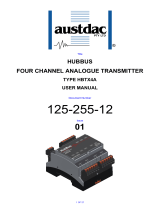
NOTE! You can download the English and French product manuals with applicable safety, warning and caution
information from www.vacon.com/downloads.
REMARQUE Vous pouvez télécharger les versions anglaise et française des manuels produit contenant l'en-
semble des informations de sécurité, avertissements et mises en garde applicables sur le site www.vacon.com/
downloads.
Functions of the Vacon
®
AC drive
•
You can select the necessary application for your process: Standard, HVAC, PID control,
Multipump (single drive) or Multipump (multidrive). The drive automatically makes some
of the necessary settings, which makes the commissioning easy.
•
Wizards for the first startup and the Fire mode.
•
Wizards for each application: Standard, HVAC, PID control, Multipump (single drive) and
Multipump (multidrive).
•
The FUNCT button for an easy change between the local and the remote control place.
The remote control place can be I/O or fieldbus. You can make a selection of the remote
control place with a parameter.
•
8 preset frequencies.
•
Motor pontentiometer functions.
•
A flush function.
•
2 ramp times that you can program, 2 supervisions and 3 ranges of prohibited
frequencies.
•
A forced stop.
•
A control page to operate and monitor of the most important values quickly.
•
A fieldbus data mapping.
•
An automatic reset.
•
Different pre-heat modes to prevent condensation problems.
•
A maximum output frequency of 320 Hz.
•
A Real time clock and timer functions (an optional battery is necessary). It is possible to
program 3 time channels to get different functions on the drive.
•
An external PID controller is available. You can use it, for example, to control a valve with
the I/O of the AC drive.
•
A sleep mode function that automatically enables and disables the operation of the drive
to save energy.
•
A 2-zone PID controller with 2 different feedback signals: minimum and maximum
control.
•
2 setpoint sources for the PID control. You can make the selection with a digital input.
•
A function for PID setpoint boost.
•
A feedforward function to make the response to the process changes better.
•
A process value supervision.
•
A multipump control for the single drive and multidrive systems.
•
The multimaster and multifollower modes in the multidrive system.
•
A multipump system that uses a real time clock to autochange the pumps.
•
A maintenance counter.
•
Pump control functions: priming pump control, jockey pump control, pump impeller
auto-cleaning, pump input pressure supervision and frost protection function.
PREFACE VACON · 5





















